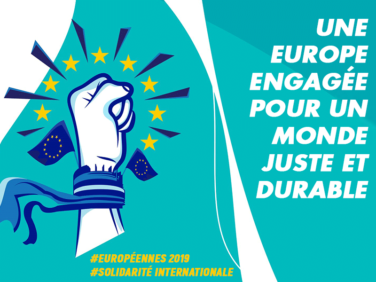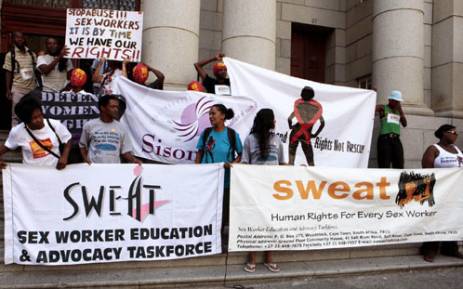
The heartless are at work in various borders using various ways to exercise heartlessness. In the 2019 European elections, nationalists, populists, and the extreme right-wing elite came together (with the help of Steve Bannon) following current trends that brought authoritarian leaders to power. While the neoliberal system of austerity, hyper consumption and incarceration hadsomething to do with it, populists’ political discourses of have played the-fear-of-the-stranger score.
The phrase “immigration crisis” triggers fear in places where migrants in processing centers on the borders are out of sight, but the real crisis is for migrants. They face crisis at home, trying to escape, and crossing borders. Then they face crisis as they arrive in Europe or the US. Crisis for migrants has a name: detention. During the European election campaign, Raphael Glucksmann, a leading candidate for one of the leftist lists in France, declared, “Some migrants in Hungarian jails are starving to death, because they don’t receive food.” He admitted that he pushed it by saying “to death” but the reality was well described in a report, published May 2019, by the Commissioner for Human Rights of the Council of Europe, Dunja Mijatovic.
While the report documents inaccessibility of “refugee protection,” the common thread for too many “democracies” is detention. The US has “iceboxes”, cells where migrant families are detained in freezing conditions with little to no medical assistance, resulting in children’s deaths. Hungary has its no-food plan and the cold. The report relates the conditions of living in the “transit zones,” another name to mask detention centers.
The language used by the extreme Right, that is seeping into the language of mainstream media and people, masks the terrible human rights violations imposed on asylum seekers and immigrants arriving at the European and US borders. Language is key if we want to understand how the politics of suffering. are trivialized. In 2015, under Viktor Orban’s rule, Hungary changed its legal framework for asylum seekers. The new framework is migration without human rights, stepping on all international human rights obligations. Sound familiar? Every violation requires a language of justification. Here is the Hungarian version: Migrants arriving in Hungary are “free” to demand asylum although the status is almost impossible to attain. There are two places where people may file for asylum status in Hungary, both on the Serbian borders. These places are described as “place of accommodation” and called Transit Zones. According to the report: “The Commissioner considers that the systematic confinement of asylum seekers in the Transit Zones without time limit and effective access to remedy under an environment described by the CPT as `carceral’ qualifies as detention.”
Asylum seekers cannot leave and do not receive food. This is why the French candidate, Raphael Gluksmann, described the situation in Hungary as a threat for all. When Hungary implemented its policy of food deprivation, cases were filed with the European Court of Justice (August 2018); only then did regular food distribution to migrants on the border resumed. Since then, food has been regular in the Transit Zones. Families with children are detained in Transit Zones, surrounded by rolls of razor blade wire. Extreme Right policy makers justify their actions creating inhumane conditions by pretending that they will deter asylum seekers or immigrants from arriving at their borders.
In the US-Mexico border, the separation of children from parents was justified in this way: Asylum-seekers should not have brought their children and undertaken the long and difficult journey to the processing center. The parents are blamed for putting their children’s lives in danger! Immigrants (distinctions between asylum seekers and immigrants have disappeared) are held in detention in such bad conditions that some decide to return to the dangerous conditions they left in the first place. Children were separated and kept in foster care before the child-separation policy was called into question. So much for extreme Right’s family values!
When applied to human beings, the word “illegal” persuades people that “illegals” do not have rights. In the US, many do not know that even if a person does not have proper documents, they still have rights under International Human Rights laws. The phrase “illegal immigrant” nullifies and renders invisible any human being without documentation, even asylum seekers. Trump and his followers describe asylum seekers and all Latin American immigrants as terrorists and rapists. The public has been fed on this narrative of fear since the 9/11 attacks. Now it has grown to the satiation point with the “crisis” at the border.
In Europe and the US, the heartless had an answer to justify heartlessness. The Hungarian response bluntly stated that their true mission is to protect their territory and punish those who commit offences/crimes. According to the government, anyone entering “illegally” endangers the territory.
In France, the Defender of Rights, a Constitutionally authorized position, has attacked the French government for incarcerating children. A legal battle has taken place over the confinement of migrant families, with the higher courts ruling against the decision to keep migrant families in jail. The number of migrant children kept in confinement is directly connected to national politics. The period with the lowest rate of incarceration of children covers Christiane Taubira’s time as Minister of Justice, since she believed in restorative justice. Meanwhile, in the US, with the wave of young Democrats voted into office in 2018, we see the beginnings of counter arguments to the extreme Right’s spewing of fear against the Other.
Today’s migrations occur in a context of wars, climate change, and over-exploitation of natural resources. As philosopher Elsa Dorlin recently suggested, we need to understand how exposing the murder of the Other at the border is based in necropolitics becoming necroliberalism. The Geneva Convention, the International Human Rights—these are eschewed by the Right through the language of fear and capitalist territorialism.
In the recent European elections, the populists, though divided, collected votes among disenchanted people. In France, for example, where incarcerated people vote, the majority of incarcerated people voted for populist parties, including the one that is clearly xenophobic. On the other hand, in the same elections, there was strong resistance to the heartless, coming from people organizing for environmental justice, gender ethnic class equality, migrants’ rights, and more.The heartless must be brought down.

(Image Credit 1: United for Intercultural Action) (Image Credit 2: Coordination Sud)



